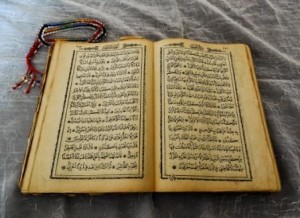Answer
This response is from About Islam’s archive and was originally published at an earlier date.
Salam Dear Marwan,
Thank you for your questions and for contacting Ask About Islam.
First, the punishment for killing an innocent person is not stoning to death, it is rather capital punishment. This can be done in many different ways, as it is the case in many countries.
Since Islam has ultimate respect for human life, any citizen who commits a murder is to be punished equally before the law. It does not matter if the victim is a non-Muslim, a woman or even a child in a Muslim legal system.
It is finally a human life, which is equally valued. The saying usually narrated in this regard needs to be put in the context of the pre-Madinah stage, with its legal order and constitution.
The main reference here is the Quran, which states that killing an innocent soul is like killing all humanity. However, I need to remind you here that capital punishment can be prevented by the will of the victim’s family.
This is either through their pardon or through accepting blood money in the case of killing by mistake (particularly in cases such as traffic accidents or unintentional shooting.)
The penal code has become very complex and it is simply becoming a matter of application of Islamic law to new circumstances, regarding how to run a system of justice. Here comes the important role of the society. In case you need more information, there is an excellent book by Lawrence Rosen titled “The Justice of Islam”, which reflects such ideas.
Concerning your second question, you have to go back to history books of each region, where the governance of the Muslim society took various paths. Here I want to stress that you cannot study the early Islamic societies with a post liberal legal mentality.
Many disagreements and disputes were settled within the organic society in which the minority was part and parcel. There were no ghettos. Community leaders from both sides sorted out many disputes, which were subject to customary law, derived from Shariah (Islamic Law).
So, though you can go to legal courts documents, you must bear in mind the complexity of justice “process” in Islamic societies. Anthropology and sociology might help here more than the dominant legal approach.
Last, regarding how people other than People of the Book would be treated in the Islamic state, this depends, very much, on the “social contract” and the bond of citizenship.
In the history of Islam, Zoroastrians were regarded as a religious minority, though they are neither Christians nor Jews. You would be amazed how Islam, through history, was able to accommodate different sects and religions.
I thank you again and would appreciate your feedback. Your questions do not address simple matters. Answering such questions can actually keep scholars busy for decades.
Salam and please keep in touch.
